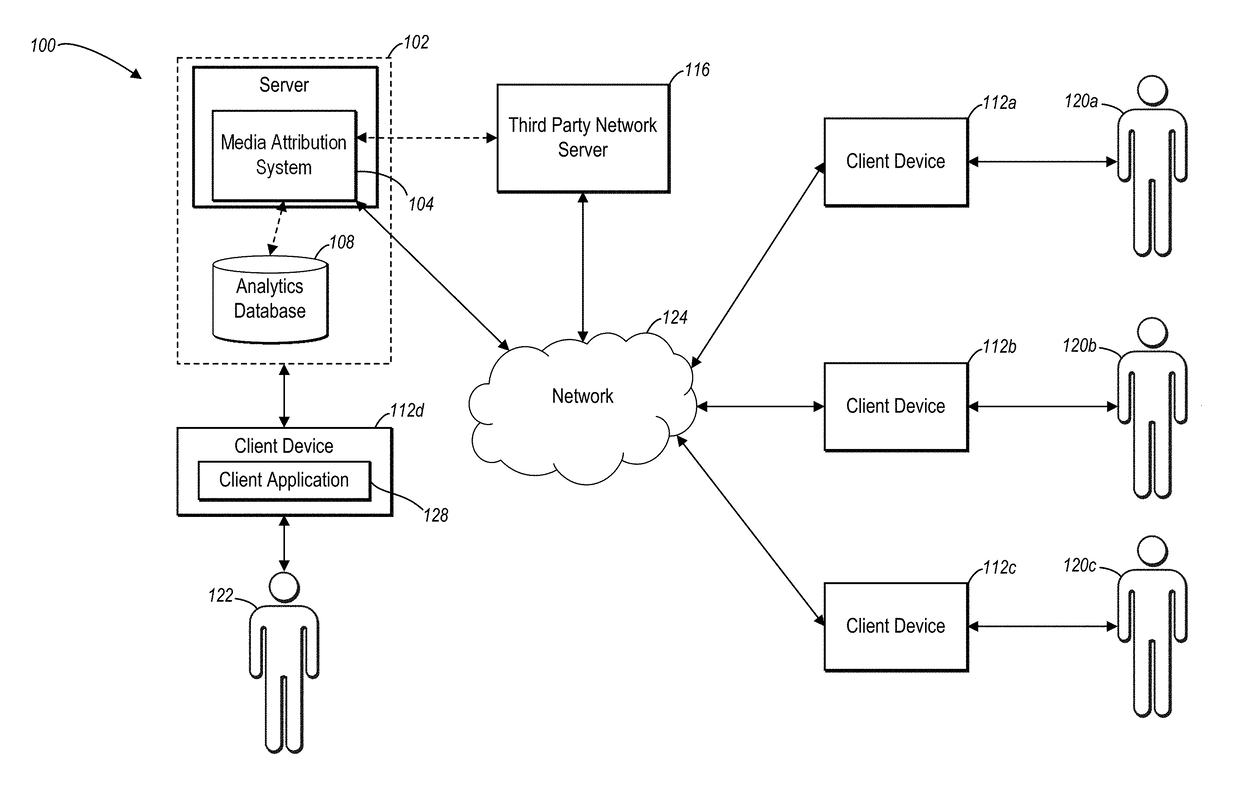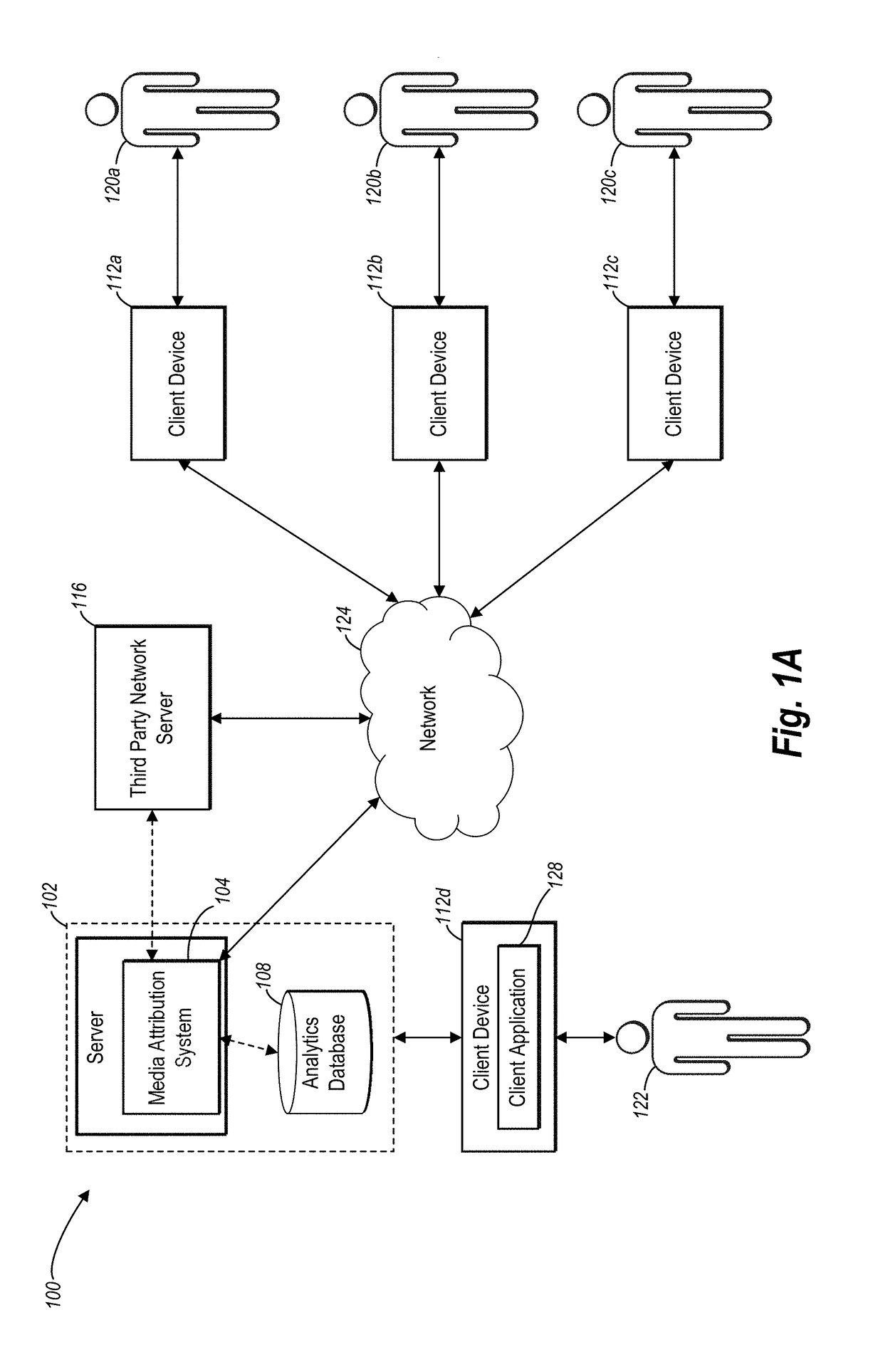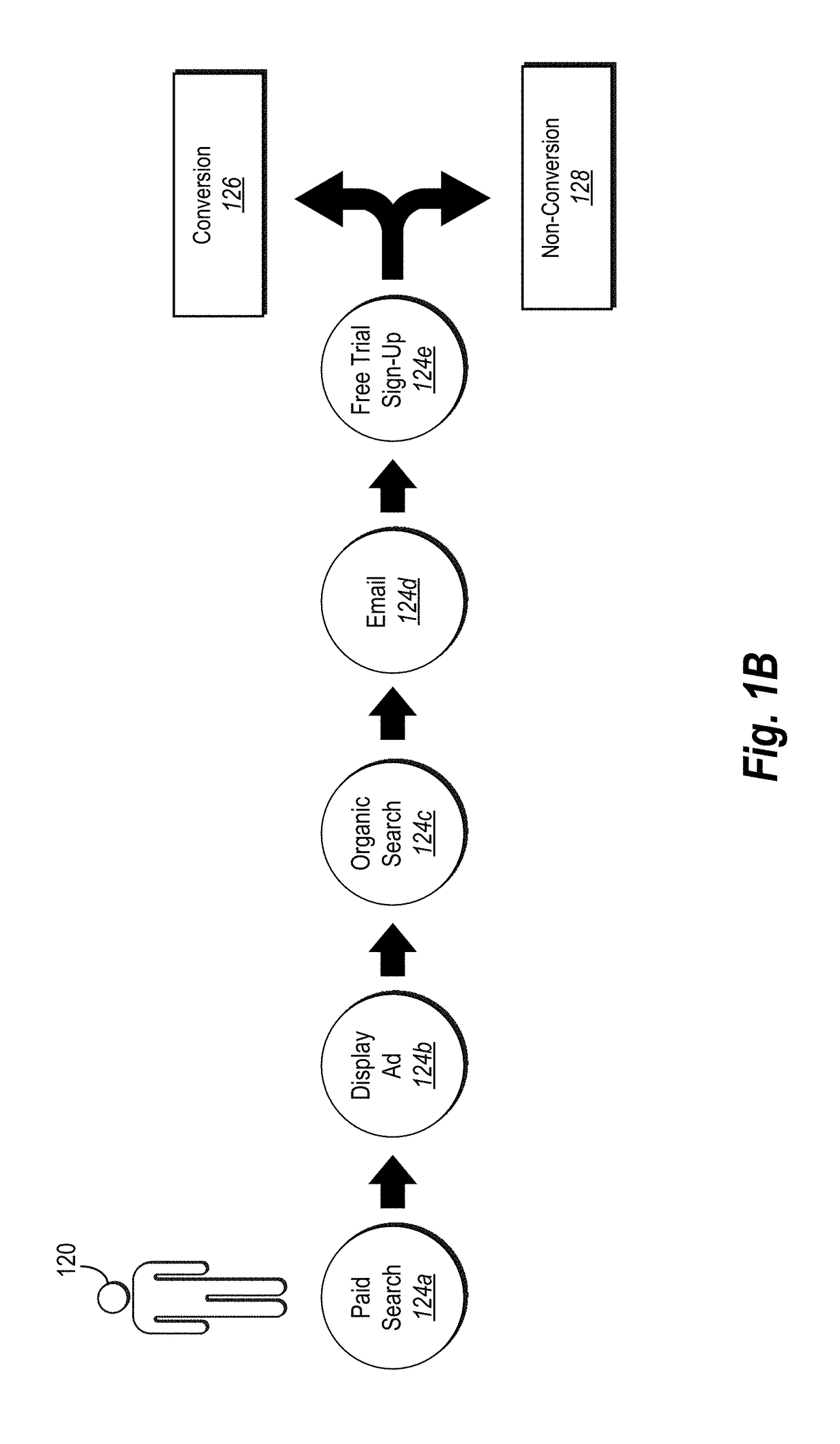Determining algorithmic multi-channel media attribution based on discrete-time survival modeling
a multi-channel media and discrete-time survival technology, applied in the field of determining algorithmic multi-channel media attribution based on discrete-time survival modeling, can solve the problems of inability to identify the importance and influence of each media channel, and the limitations of conventional communication systems,
- Summary
- Abstract
- Description
- Claims
- Application Information
AI Technical Summary
Benefits of technology
Problems solved by technology
Method used
Image
Examples
Embodiment Construction
[0018]One or more embodiments of the present disclosure include a media attribution system that improves multi-channel media attribution by employing discrete-time survival modeling. In particular, the media attribution system uses event data (e.g., interactions and conversions) in connection with a discrete-time survival model to generate positive and negative conversion paths. The media attribution system then uses the conversion paths to train an algorithmic attribution model, which the media attribution system employs to determine attributions scores for each interaction. As described in detail below, employing the media attribution system discretizes lag, addresses time-decaying media effects, tokenizes the events to eliminate influence of duplicate events, and uses control variables to reduce bias. In addition, the media attribution system employs the generated algorithmic attribution model to determine attribute scores (e.g., marginal and fractional scores) that accurately re...
PUM
 Login to View More
Login to View More Abstract
Description
Claims
Application Information
 Login to View More
Login to View More - R&D
- Intellectual Property
- Life Sciences
- Materials
- Tech Scout
- Unparalleled Data Quality
- Higher Quality Content
- 60% Fewer Hallucinations
Browse by: Latest US Patents, China's latest patents, Technical Efficacy Thesaurus, Application Domain, Technology Topic, Popular Technical Reports.
© 2025 PatSnap. All rights reserved.Legal|Privacy policy|Modern Slavery Act Transparency Statement|Sitemap|About US| Contact US: help@patsnap.com



